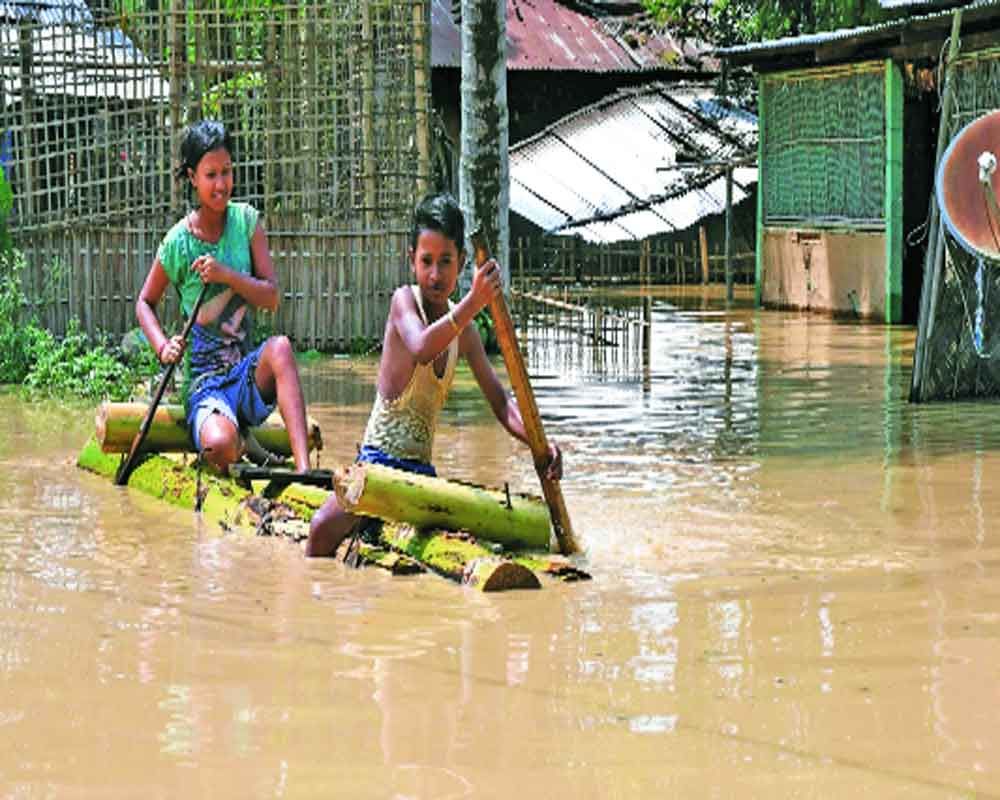It is time to shift to a sustainable model of development
Visuals of heavy rains playing havoc across major states of India have brought back the issue of climate change on radar. The message emerging out of these events is loud and clear, that mother nature is in no mood of tolerance. It was not so long back when climate scientists had predicted that global warming will one-day lead to collapse of human civilization. Unfortunately, that prediction is coming true.
In a written reply to a question, the Government informed the Lok Sabha about a loss of 1,593 lives due to natural calamities in 2021-22, 2,422 in 2020-21, and 1,989 in 2019-20. Many experts see climate change, caused by human activity, as the reason behind the increasing incidence of natural disasters. In fact, not only are human lifestyles and industrial activities changing the world’s climate, but the model of development being followed by most countries is magnifying the scale of destruction and damage in the event of a natural disaster.
Growing urbanisation is resulting in the concentration of humans in densely populated cities that draw a huge amount of resources to support the increasingly consumerist lifestyles of their people. With land in cities scarce and expensive, high-rise buildings are favoured for commercial as well as residential use. These towers accommodate a large number of people in a small area and are therefore said to be a more efficient way of using space, but at the same time such buildings rely more on electricity for elevators and water pumps etc.
Our dependence on electricity doesn't end there. With communications technology advancing at an amazing pace, a lot of business and personal work is now done electronically (especially post Covid-19). As technology advances and spreads geographically, more and more work is being automated to save money and time. The result of all this is an ever increasing dependence on machines, and in many cases their complex networks, where a glitch in one place can have global repercussions.
The downside of such dependence on machines and electricity becomes apparent from time to time when some cities suffer blackouts. Trains grind to a halt; underground metro trains are trapped in dark tunnels; people get stuck in lifts; supermarkets stop selling goods because their cash registers don't work; and work that involves computers comes to a standstill. Power outages during disasters also knock out the supply of water, which is more vital for survival than electricity. Cities that get their supplies of food and other items of daily use from outside also suffer a shortage of these when transport networks get damaged. The scale of all these problems during a disaster is bigger in cities than in rural areas. Hence, if we adopt the philosophy of minimal use and equitable distribution of resources, we will not only live more responsibly on this planet but also see the magnitude of our problems reduced. After all, it is the unequal distribution of development that draws people from rural areas to cities, which thus keep expanding. But instead of adopting an approach that reduces our consumption of resources and our dependence on machines, we are seeking clever technological fixes for all foreseeable problems and in the process becoming more beholden to external resources that can fail us any time.
It is high time now that we shifted our focus to a more down to earth, sustainable model of development that would place a lower burden on the planet. It’s still not too late; even now there is time to change our course towards more sustainable, nature-friendly practices. It only requires a change in our mindset — from that of acquisition and consumption to one of sharing and caring.
(The author is a spiritual educator and popular columnist for publications across India, Nepal and the UK)


























